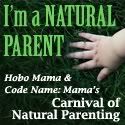 |
| Photo credit puritani35 on Flickr |
Matthew 5:3-13
"Blessed are the poor in spirit, for theirs is Kingdom of Heaven." ~ NIV, NASB
"You're blessed when you're at the end of your rope. With less of you there is more of God and his rule." ~ The Message
"Happy, spiritually, are the financially poor, because theirs is Heaven's Realm." ~ The Source
There is blessing and happiness in humility. Our culture encourages parents to act from pride. It views children as parental property, "less-than" adults in nearly every way. That is not the way of citizens of the Kingdom of Heaven. In Jesus' Reign, the greater serves the lesser.
What parent hasn't had moments (or days, or years...) when we have felt at the end of our rope? As we acknowledge our dependence on God, we find peace, strength and wisdom to fulfill our calling as parents. And, certainly, having children can be a factor in being financially poor! :p
"Blessed are those who mourn, for they will be comforted." ~ NIV, NASB
Happy is not the only acceptable emotion. We can be authentic with our children. We can mourn in the secure knowledge that God cares. He comforts us without shaming or minimizing. How are we teaching our children to deal with sadness and pain? Do we comfort them? Or do we ignore their cries, especially when inconvenient (sleep training, tantrums)? Do we try to stop them from crying so that we won't be made uncomfortable ("Don't be a baby. Big boys/girls don't cry. You're OK. Stop or I'll give you something to cry about! Here, I'm going to give you a cookie/toy/fun activity.")? Will they really believe that God will comfort them if we tell them, either verbally or through our actions, that their sadness is not important enough to us for us to comfort them?
"Blessed are the gentle, for they will inherit the earth." ~ NASB
"Happy are those who are not angry or prone to temper, for they will inherit the earth." ~ The Source
How are we modeling gentleness with our children? Meekness? Jesus described Himself as gentle and humble in heart--would our children describe us that way? Or do we justify pride and bullying behavior (hurting or shaming them when we don't get our own way) because "we are the parents"? Do they see us as angry and prone to temper?
"Blessed are those who hunger and thirst for righteousness, for they will be satisfied." ~ NASB
Are we consistently seeking right relationships with God and others? That is the source of satisfaction for us. Do our kids see us reading God's Word, praying and living out our faith in our attitudes and relationships? Or do they see us indifferent to spiritual growth?
"Blessed are the merciful, for they shall receive mercy." ~ NASB
Do our children wince at every mistake, waiting for our judgement and condemnation? Do they fear to tell us the truth because they expect punishment? Or do they see us showing mercy and compassion, coming alongside to help and encourage as we guide them?
"Blessed are the pure in heart, for they will see God." ~ NIV
"Happy are those with purified minds, because they will see God." ~ The Source
Do we demonstrate pure hearts? The character of Christ? A passion for holiness and the fruit of the Spirit? Or are there areas where we are still slaves to sin? Are our priorities in order? When we have hearts full of love, we see God's fingerprints all over the lives of our children. When our perceptions become tainted by fear, selfishness and lack of wisdom, we become adversarial, seeing evil intent behind every action. The more we seek Jesus' forgiveness ourselves (purifying our hearts), the more freely we will offer it to our little ones.
"Blessed are the peacemakers, for they will be called children of God." ~ NIV
How do we teach our children to resolve conflicts? Do they see us as peacemakers, reaching out to bring peace and heal breaks in a relationship? Are we quick to apologize and make amends for our mistakes? Do we try to see things from their point of view? How does our relationship as children of our Heavenly Father teach us to parent?
"Blessed are those who are persecuted because of righteousness, for theirs is the kingdom of heaven. Blessed are you when people insult you, persecute you and falsely say all kinds of evil against you because of me. Rejoice and be glad, because great is your reward in heaven, for in the same way they persecuted the prophets who were before you." ~ NIV
Do our children see us willing to do the right thing, even when it isn't convenient, even when it hurts our reputation? How do we respond to insults? What if our children say hurtful things? Do we respond with hurt pride and anger, or do we check our conscience and respond with peace and confidence? Are we willing to follow our convictions, despite insulting comments when our babies are "still" nursing, "still" waking at night, or when we respond with kindness instead of a smack on the rear, or do we find ourselves parenting more harshly in front of others to make ourselves look good?
Jesus never put on age limit on His teachings. He never said, "Treat others the way you would want them to treat you, unless they are children." There are no caveats that peace and gentleness, patience and kindness are only meant for adults in our lives. Instead, He blessed the children. As we follow His example, may we be a blessing to our children.














